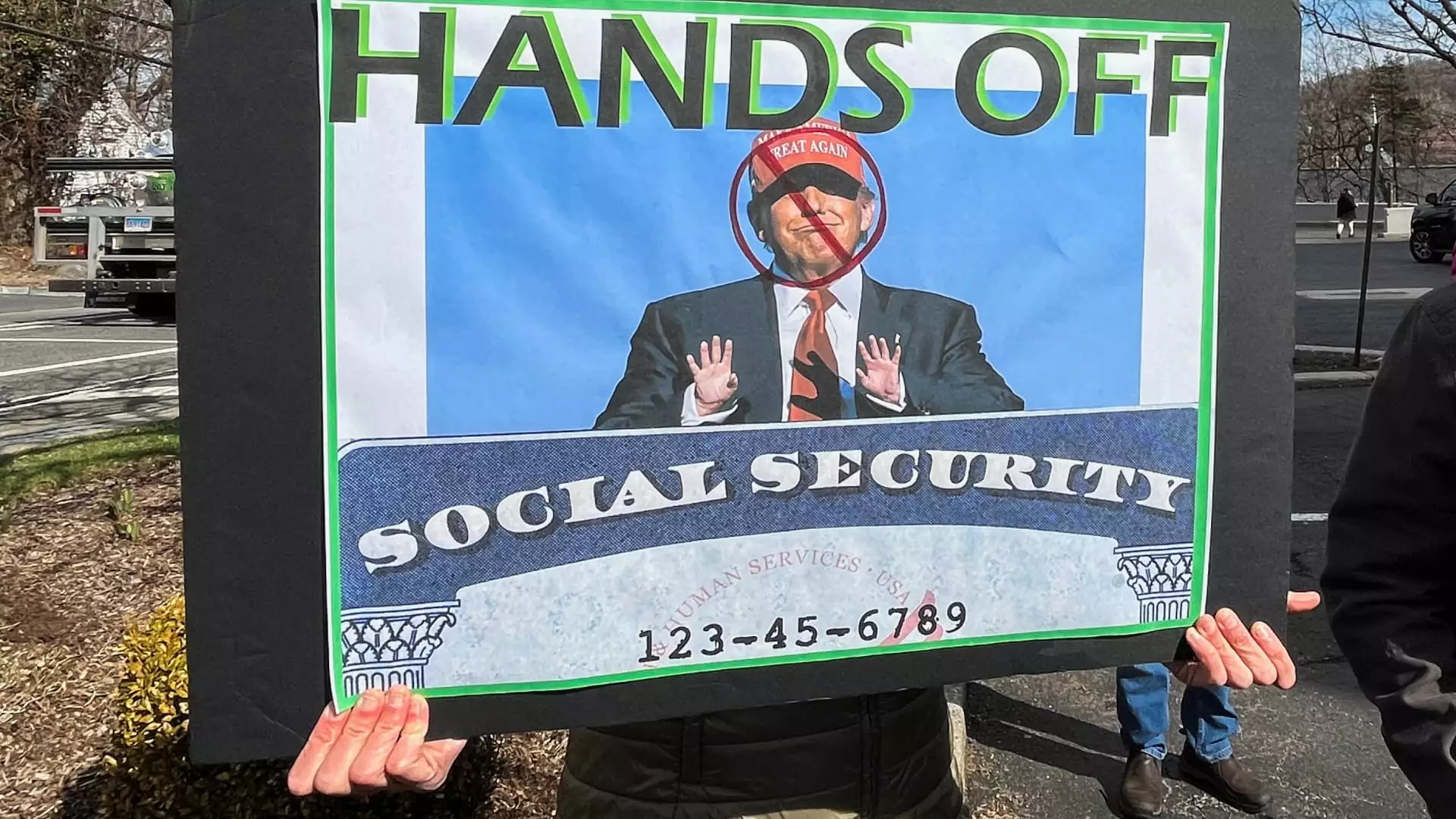In today’s digital age, where personal information is often treated as currency, the battle over data privacy remains paramount. Recent judicial decisions, such as the block on the Department of Government Efficiency (DOGE) from accessing sensitive information contained within the Social Security Administration (SSA), highlight the precarious balance between government oversight and individual rights. U.S. District Judge Ellen Lipton Hollander’s preliminary injunction is not just a legal victory for privacy advocates but also a stark reminder of the need for stringent safeguards against governmental overreach. The implications of this ruling extend far beyond the case itself, raising critical questions about how much access government agencies should have to private citizens’ data.
An Uneasy Alliance: Legal Protections Under Siege
At the heart of this debate are the legal protections embodied in the Privacy Act, the Social Security Act, and the Administrative Procedure Act. The lawsuit filed by prominent unions such as the American Federation of State, County, and Municipal Employees and the AFL-CIO paints a grim picture of the potential violations that might occur when government entities operate with unchecked authority. When we consider the cavalier disregard for privacy protections that DOGE exhibited, it becomes clear that more robust, transparent frameworks are necessary to keep personal information from falling into the hands of those who might misuse it.
Legal organizations like Democracy Forward, advocating for citizens’ rights, underscore an essential truth: allowing agencies unrestricted access to people’s private information cultivates an environment ripe for abuse. Such scenarios, where data is accessed without accountability, threaten the very foundation of trust that citizens must have in their government.
The Consequences of Non-Compliance: A Call for Accountability
More than an injunction, Judge Hollander’s ruling serves as a clarion call for accountability in the government’s handling of personal data. The court not only prohibited DOGE from compromising sensitive data but also ordered a purge of any personally identifiable information that agency members could have accumulated since January 20. This raises the question: what happens when agencies inadvertently— or worse, deliberately—step outside the legal boundaries set for them?
Agencies like the SSA must serve the public interest, but, ironically, that responsibility sometimes overwhelms their commitment to safeguarding individual rights. The DOJ’s apparent disregard for critical privacy laws propels us into a perilous realm where average citizens find themselves vulnerable to data exploitation. The ruling affirms that corporate-like maneuvering in governmental operations can not only infringe upon individual rights but can fundamentally transform public services into something authoritarian, undermining the trust that is essential for a functioning democracy.
The Unofficial Stakeholders: Whispers of Support and Dissent
The response to the ruling echoes throughout political and legal circles, with polarized opinions reflecting deeper fractures in society. White House spokesperson Elizabeth Huston indicated an intention to appeal, framing the issue within the dimensions of a broader campaign against government inefficiencies. However, this perspective risks trivializing the concerns about privacy and data ethics being raised by unions and advocacy groups alike.
The juxtaposition of these two viewpoints highlights a stark reality: while some in power argue that data access is crucial for combating waste and fraud, citizens rightly worry about the implications of sacrificing personal privacy for the sake of administrative efficiency. This uneasy tension is emblematic of the age-old struggle between liberty and security.
The Need for Proactive Digital Citizenship
As citizens, the onus is on us to not only understand our digital rights but to advocate for them actively. The legislative and judicial spaces may lag in responding to these complex issues, but civic engagement can force the conversation forward. Bringing awareness to the importance of data privacy in legislative reforms assures the community that independence and autonomy extend to our personal information as well.
In an era defined by headlines about corporate data breaches and influence peddling, the need for vigilance in protecting our privacy is more vital than ever. The ruling against DOGE is a beacon of hope, yet it is also a prompt for all stakeholders—government, NGOs, and the general public—to combat the impending risks of data misuse proactively. As the landscape of digital rights continues to evolve, so too must our strategies for securing them.

